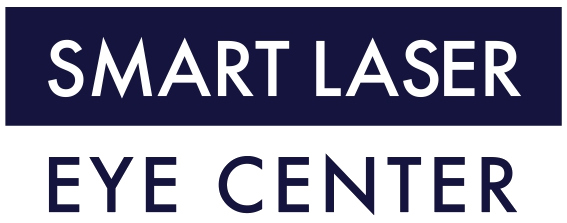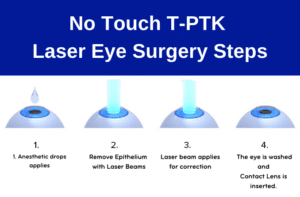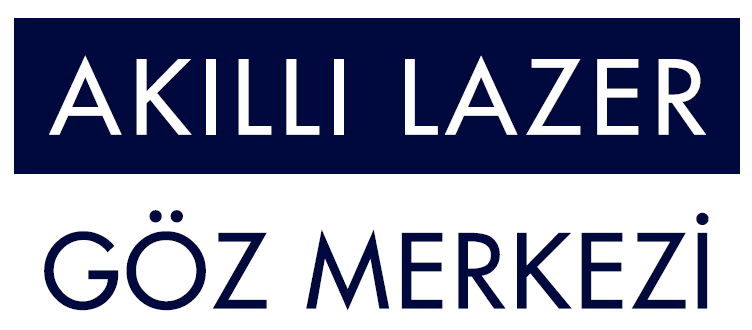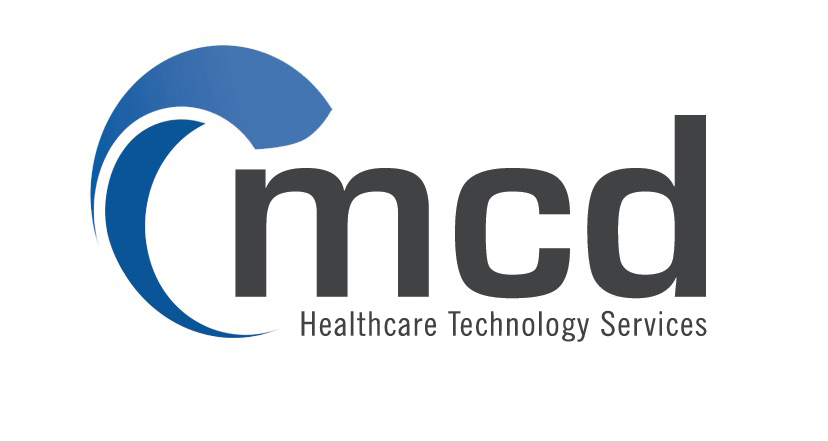Home »
No Touch Laser Eye Surgery
No Touch Laser Eye Surgeries for Myopia, Hyperopia and Astigmatizm
No Touch Laser Eye Surgery
TransEpithelial-PRK , medical name is “TransEpithelial-Photo Refractive Keratectomy” means the destruction of the epithelial layer at the top of the cornea with intense and long-term Laser beams and then shaping the cornea with Excimer Laser. It is called “No Touch Laser Eye Surgery”.
You may have seen that some eye clinics in Turkey have been promoting laser eye surgery under the name “No Touch” in recent years. In particular, an eye surgery cannot be apply medically while touching the eye. Your doctor must touch your eye during the surgery. This does not create a medically negative situation, on the contrary, it requires complete procedures during Laser Surgery. This surgical technique is generally preferred in patients with thin corneas, “Glaucoma“, that is, eye pressure or “Renita Detachment” problems. In this technique, the epithelial layer on the eye is destroyed by long-term laser beams. Therefore, the No Touch Laser Eye Surgery method is an upper version of the PRK method, which has been used for a long time. T-PRK – No Touch Laser Eye Surgery is a difficult surgical method for the patient but easier for the doctor.
After Surgery
In this method, the first 3-4 days may cause moderate to severe pain and a feeling of watering and stinging throughout the day. In the No Touch method, a soft contact lens must place for protection after the surgery and this contact lens is removed 4 to 5 days after the cornea heals. it may take up to 1 week for vision to clear. Vision becomes much clearer after the 3rd month. Although, it is possible for our patients who underwent surgery with this technique to continue their normal lives only after 1 week.
What are the important complications for No Touch (T-PRK) Laser Eye Surgery
Especially in this technique, A long-term laser beam or by manual surgical procedure removes the epithelial top layer of cornea. For this reason, the patient spends 3-4 days in severe pain and discomfort after the surgery.
In this technique vision capability restore back in 1 week. Accordingly for a good vision, patients needs to wait about 1-2 months. This method uses more laser beams and heat on the cornea than the LASIK technique.
In order to prevent the risk of “Haze” blurry eye complications due to thermal impact. Some medications and procedures need to applies during the surgery. However, these medications and procedures are not 100% guaranteed to eliminate the risk of “Haze”. No-Touch or PRK method is not eligible for hyperopia patients because of the risk of “Haze” depending on the condition of the eye. There is no “Haze” Risk in LASIK Laser Eye Surgery.
How can this risk be minimized?
We use the new Excimer Laser Technology “Dynamic Spot Technique” to minimize the risk of “Haze”. This is a technique which minimizes risk of thermal impact “Haze” complication. It is widely use in Smart Laser Eye Centers.
Useful links:
About our eye surgeons. Presbyopia LASIK Laser Eye Surgery. Lasik Laser Eye Surgery PRK Laser Eye Surgery. Sensitive Profile Patient Program. LASIK Definition. FAQ. Cataract and Lens Replacement Eye Surgeries. Keratoconus Cross-Linking Surgery. Blepharoplasty Aesthetic Surgeries. Dry Eye Syndrome Treatments. Periodic Eye Examinations.
Eye Preparation
With the push of a button, your doctor directs the robotic laser to your eye. After this stage, the robotic laser finds your eye, locks onto your eye and approaches your eye until the distance to which the laser shot will be fired. Before a laser can be thrown to correct your eye, the epithelial layer on the upper part of your cornea must be destroyed by laser. This laser pulse lasts approximately 30 seconds for each eye. Afterwards, the epithelial layer of your eye is completely destroyed and laser shooting is started for correction.
First 3-4 Days
From the first hour after the surgery and for 3-4 days, you may experience a moderate or severe stinging or burning sensation. Your vision starts to improve after 3-4 days. During this period, you should definitely not touch your eyes and use the eye drops given to you. On the 3rd or 4th day of the surgery, your doctor will examine you and remove the soft contact lens placed in your eye.
After 1st Month
At the end of the first month, you must come for control. The first month examination is very important for your eye health. All tests and examinations are done again. The condition of your eyes is evaluated and information is given about the success of the surgery. The healing process of your cornea continues until the sixth month. The side effects of the surgery, if any, will decrease and disappear during this period. It is recommended that all our patients have eye check-ups every year.
Frequently Ask Questions About No Touch Laser Eye Surgery
At what age can I have No Touch Laser Eye Surgery?
No-Touch Laser Eye surgery can apply to patients aged 18 years and older with suitable eye structure under normal conditions.
Should I choose No Touch Laser Eye surgery or LASIK Laser Eye surgery?
Absolutely LASIK! LASIK Eye Surgery is the right choice for the comfort of the patient. Especially No-Touch T-PRK, is the last choice for patients whose eyes are not suitable for LASIK surgery. In the No-Touch method, the patient spends 4 days with severe pain, stinging and burning sensation. Vision improves slowly after 1 week and it may take 3 months to achieve a good vision. The patient may not be able to continue his normal life for 1 week. Therefore, LASIK is the most accurate and reliable laser surgery method for the comfort of the patient.
Medically, No-Touch can be eligible for patients with corneas below the medical limits or who have had previous retinal detachment surgery and patients with glaucoma or patients with special conditions.
When can I return to my normal life after No Touch Laser Eye Surgery?
No Touch Laser Eye Surgery
Especially, patients spends 2-3 days with moderate stinging and burning sensations. Vision improves within 1 week and it may take 3 months to achieve a good vision. Therefore it can be preferred with the decision of your doctor in patients whose corneas are below the legal limits, who have undergone retinal detachment surgery and have glaucoma, or in patients with special health conditions. As as result of this surgery, patients cannot go to work for 2-3 days and cannot drive. They cannot wash face for up to 1 week. For 2 weeks after the operation, you are not do make-up or enter the pool and do any sweaty sports activity.
Is laser eye surgery right for me?
If you are struggling with the ongoing cost of glasses and/or contact lenses, simply find them to be an inconvenience, or they are affecting your eye health, opting for laser eye surgery could be a great alternative. Around 85% of adults are now suitable for a vision correction surgery procedure. By booking in for a free consultation, we can perform a range of comprehensive tests to assess your suitability for treatment.
Can I have laser eye surgery while I’m breastfeeding or pregnant?
Especially for pregnant or breastfeeding mothers are need to wait to be eligible for treatment as hormonal changes could affect your eyesight. You can consider having laser eye surgery three months after you stop breastfeeding or if you are not breastfeeding, three months after you give birth.
Are both eyes treated at the same time?
With all laser eye surgery procedures, surgery will be perform on a single eye at a time. Both eyes usually treats on the same surgery.
What’s the success rate of laser eye surgery?
Laser eye surgery is a highly effective treatment, with both LASIK and LASEK laser eye surgery having very high success rates. we treat, 98.8% achieved 20/20 vision or better following surgery.
What are the most common risks and temporary side effects?
Laser Eye Surgery
In Laser Eye Surgery, there are a number of complications that can be dealt with, though rarely. As such, it is important to choose an expert eye surgeon who often deals with eye complications.
The list of Surgery Risks and rare complications:
- Eye infections that may occur when people do not take their medication properly.
- Epithelial ingrowth.
- Flap slippage due to unconscious contact after the surgery
- “Haze” blurry eye.
These problems can be compensated with medical intervention.
Do I need to have surgery again?
There is a possibility of re-operation, especially in patients who use high prescription glasses. That’s why Sensitive Profile Patient Program available for high prescription patients.
Is Laser Eye Surgery 100% guaranteed for life?
One of the most frequently mentioned issues among patients is the increase in eye dioptries after surgery. Basically, laser eye surgery is a correction surgery. No doctor can guarantee that your eyes will not deteriorate in the future. Although doctors will only comment on your eye condition in future. Your eye is an important organ of your body and it ages with you just like your other organs. It is possible for your eyes to deteriorate again for any medical reason after this surgery. However, under normal conditions, the eye of a healthy individuals will not deteriorate.
However, if you have some cronical diseases that cause deterioration of our eyes (such as diabetes, hypertension, heart and kidney diseases, etc. ). It is important to be under strict control. Visit your eye doctor regularly. A lifetime guarantee cannot be offer to the patients in all refractive eye treatments. In case your eyes deteriorate again in the future, your doctor will try to correct your eyes with possible treatments.
What should you expect after laser eye surgery?
- Temporary flashes of light in your night vision after surgery.
- The sun is very bright during the day.
- Temporary dry eye syndrome.
In order to avoid these, you must follow the actions your doctor tells you to take.
Especially for Presbyopia patients, your doctor will give you specific advice. The duration of treatment satisfaction will vary according to the age of each patient. Patients over the age of 50 may be more satisfy with Presbyopia LASIK Smart Laser Eye Surgery. This is because their reading vision problem will progress slowly. Your doctor will definitely inform you about this. Do not forget that since everyone’s eye structure is different, no patient is exactly like another patient.
What are the important complications for No-Touch (T-PRK) or PRK Laser Eye Surgery?
Especially in this technique, A long-term laser beam or by manual surgical procedure removes the epithelial top layer of cornea. For this reason, the patient spends 3-4 days in severe pain and discomfort after the surgery.
In this technique vision capability restore back in 1 week. Accordingly for a good vision, patients needs to wait about 1-2 months. This method uses more laser beams and heat on the cornea than the LASIK technique.
In order to prevent the risk of “Haze” blurry eye complications due to thermal impact. Some medications and procedures need to applies during the surgery. However, these medications and procedures are not 100% guaranteed to eliminate the risk of “Haze”. No-Touch or PRK method is not eligible for hyperopia patients because of the risk of “Haze” depending on the condition of the eye. There is no “Haze” Risk in LASIK Laser Eye Surgery.
How can this risk be minimized?
We use the new Excimer Laser Technology “Dynamic Spot Technique” to minimize the risk of “Haze”. This is a technique which minimizes risk of thermal impact “Haze” complication. It is widely use in Smart Laser Eye Centers.
Can Laser Eye Surgery cause a permanent problem?
Especially Laser Eye Surgery will not cause permanent damage to the eyes of patients. Unless if there is any technical, medical and / or doctor’s fault. Especially in Smart Laser Eye Centers, all surgeries are recording and storing in our cloud system for training and quality assurance purposes.
The important factors related to laser eye surgery.
Excimer Laser Eye Surgeries
Laser Eye Surgery is a minimally invasive surgery used in the treatment of eye refraction errors. Although the percentage of risks are very low. Most likely other surgeries, some complications are possible. In addition, patients should do their part to minimize these risks and pay attention to some issues.
We can list the topics to be considered in order to minimize these risks as follows.
- Patient Factor
- Physician Factor
- Technology Factor
- Hospital Factor
Patient Factor
Especially wrong patient selection is the most important risk factor for eye surgeons. Wrong patient selection is valid for all eye surgeries. The age, medical history, corneal thickness, the structure of eye, and health condition is very important for Laser Eye Surgery.
Who is not suitable for Your Laser Eye Surgery?
- Certain systematic diseases.
- You should not have an active eye infection.
- During pregnancy and breastfeeding, mothers are not suitable. Patients need to wait until the end of breastfeeding period.
- Thin corneas below the limits.
- Cataract patients.
- You must not have had eye herpes.
- Severe diabetes syndromes.
- Rheumatic disease and dry eye syndrome may endanger a person’s eyes. Dry eyes must be treated before surgery.
- Genetic corneal diseases.
- Permanent retinal diseases.
Amblyopia (lazy eye)
For patients with lazy eye (amblyopia), alternative treatments are available. Besides laser surgery can improve vision capability slightly compared to prescription glasses. Laser Eye Surgery is a solution for patients who can not use wearing prescription glasses. Amblyopia is an eye condition, especially in children, where eyes are not able to focus properly.
Why avoid cheap Laser Eye Surgery?
You may think that a cheap Laser Eye Surgery is good for you. In this case, you renounce technology, physician quality, medical care and sterile conditions. Furthermore, even more importantly, you take risks.
What you should take into account to make your decision?
We highly recommend that our patients select newest excimer laser technology and screening equipments, hospitals where the environments are completely sterile, experienced eye surgeons and team. We want to remind our patients that they only have two eyes and it’s the most important and sensitive organ.
Physician Factor
Our experienced Eye Surgeons have graduated best medical schools in the world with highest rank. Such as Harvard Medical School, Viena Medical School, Cerrahpasa Medical School and Hacettepe Medical School. Our eye surgeons have successfully completed nearly 100,000 surgeries in total with 35 to 15 years of experience. At the Smart Laser Eye Centers, our patients eye condition evaluates together by all of our eye surgeons.
Especially patients should pay attention to a few factors when choosing their eye surgeon. These factors include the doctor’s experience, education, academic career, and experience with complications. The medical support team is also important. A good doctor definitely wants to work with a good medical team. If you have decided to have Laser Eye Surgery. We recommend you choose hospitals with specialist physicians and new technologies.
Technology Factor
Laser Eye Surgery is something that assures a patient of a lower risk for his health when the procedure is performed in a high-tech hospital. The personalized elegance to this surgery is mostly decided through the surgeon’s training level, academic qualification and clinical experience of various specialists working together. Certainly, every eye surgeon would want to use that latest technology as it is necessary to be acquired and used during every operation. It doesn’t matter how well they know the procedure, they would want to use that most advance technology.
Hospitals who invested in this technology should not be expected to offer cheap surgery. Hospitals are investing in these advanced technologies make this investment by thinking of their patients. Eye treatment technologies are among the branches that require much higher investment compared.
Hospital Factor
Especially in full-fledged hospitals have to apply strict rules on sterilization. These rules apply to all patients. Patients prefer to have Laser Eye Surgeries because they are more secure. Being in a full-fledged hospital is also sterile. In addition, full-fledged hospitals give patients a sense of assurance. Smart Laser Eye Centers locates in fully-fledged of multiple disciplines hospitals.
How much does laser eye surgery cost?
PRK Laser Eye Surgery Pricing
The procedure does to treat refractive errors more effectively. Laser Eye Surgery is usually performing on two eyes. Sometimes patients would need correction for only one eye. Therefore price can give for single eye surgeries.
We give laser eye surgery pricing as includes all on the cost.
No Touch Laser Eye Surgery outcomes include the performance of the following actions:
- Laser eye surgery eligibility checks (free of charge).
- Surgery Examination.
- 2 eye drops they use for the first month.
- Protective Glasses.
Click here for all pricing details details.
Your Expert Eye Surgeons
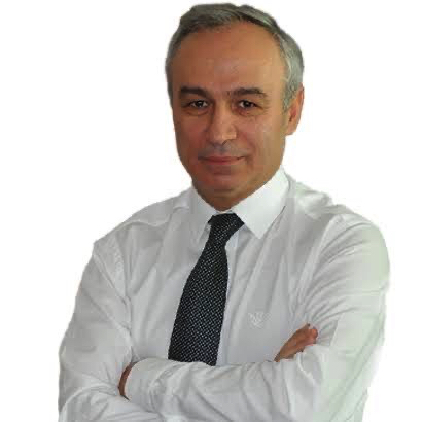
Education Information:
After graduating from primary school in Trabzon, Dr. Ofluoglu. He completed secondary and high school in Istanbul. He graduated from Istanbul University Cerrahpasa Faculty of Medicine in 1987. He successfully completed his ophthalmology residency at the Medical University of Vienna, Austria. He received his specialization equivalency in Turkey from Istanbul University Capa Faculty of Medicine . He worked as an Ophthalmologist at Taksim German Hospital between 1997-2014 as an ophthalmologist.Work experience:
German HospitalGalata Medical AcademyCertificates, Memberships, Scientific Publications:
- Articles Published in International Refereed Journals (Sci&Ssci&Arts And Humanities)
- Traenenwege from Die Endeskopie Der Ablrite. Akuchar, P. Novak,
- Ofluoglu FJ: Steinkogler. Spectrum Der Augenheikunde (1985)
- Volumersatz Der Orbita Myth Bioplastic. FJ Steinkogler, A. Kuchar,
- Novak, A.Ofluoglu Spektrum Der Augenheikunde
- Turkish Ophthalmology Association
- European Society Of Cataract And Refractive Surgeons
- American Society Of Cataract And Refractive Surgery
Specialized Treatments and Surgeries:
- Retractive Laser Eye Surgery: iLASIK (Femto Lasik), LASIK, LASEK, TransEpithelial PRK (NO TOUCH) and SMILE
- Cataract Surgery (Smart Lens Surgery)
- Keratoconus Treatments – Cross-Linking Surgeries
- Pterygium – Eyelid (Bird Wing) Surgery-
- Dry Eye Disease and Treatments
- Strabismus Treatments
- Glaucoma- Glaucoma Eye Pressure Treatments
- Diabetic Retinopathy – Treatments for Diabetes-Related Eye Diseases
- Macular Degeneration Disease Treatments
Foreign language:
- English
- German
MEDICAL UNIVERSITY of VIENNA
35 Years of EXPERIENCE
>35.000 Surgery
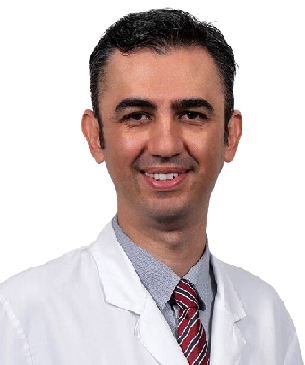
Education Information:
He graduated from Ankara University Faculty of Medicine in 2000 with the 4th rank. He completed his ophthalmology residency at Hacettepe University Faculty of Medicine . Between 2009 and 2011, he completed his master's degree in cornea, ocular surface and refractive surgery at Harvard Medical School in Boston, US. He qualified the title of associate professor in 2012 and Professor title in 2017 . He has performed over 15,000 surgeries in over twenty years.Academic achievements:
He has received numerous national and international awards (ARVO-Asia Travel Fellowship Grant Award, Gazi Eye Foundation 'Best Scientific Paper Award', ARVO Collaborative Research Fellowship Award, ICO Helmerich Fellowship Award, ICO WOC Fellowship Award, Royal College of) Ophthalmologists Best Reviewer Award, Turkish Academy of Sciences Outstanding Young Scientist Award). Koç University established its own research group with the support of KUTTAM, TÜBİTAK, TÜBA and ARVO.Awards, Memberships, Certificates:
- Ankara University Medical School, 4th rank in graduation (2000)
- International Council of Ophthalmology (ICO) “Basic Science Assessment in Ophthalmology including Optics and Refraction” Certificate (2004)
- International Council of Ophthalmology (ICO) “Clinical Science Assessment in Ophthalmology” Certificate (2005)
- Association for Research and Vision in Ophthalmology (ARVO)-Asia 'Travel Fellowship Grant Award' (2007)
- Gazi Eye Association Scientific Award (2008)
- TÜBİTAK ULAKBİM UBYT Awards
- Association for Research and Vision in Ophthalmology (ARVO) 'Collaborative Research Fellowship Award' (2009)
- TOD Glaucoma Symposium Best Oral Presentation Award (2009)
- TÜBİTAK 2219-Postdoctoral Research Fellow Award (2009)
- International Council of Ophthalmology (ICO) 'Helmerich International Fellowship Award' (2010)
- The Turkish Academy of Sciences (TÜBA) 'Outstanding Young Scientist Award' (2012)
- Association for Research and Vision in Ophthalmology (ARVO) 'Developing Country Eye Researcher Fellowship Award' (2015)
- Turkish Ophthalmology Society Scientific Award (2015)
- International Council of Ophthalmology (ICO) WOC2106 Travel Fellowship Grant Award (2016)
- Turkish Medical Association, Most Successful medical doctor of the year (2016)
- Turkish Ophthalmology Association
- Association for Research in Vision and Ophthalmology (ARVO)
- European Association for Vision and Eye Research (EVER)
- American Academy of Ophthalmology (AAO)
- American Society of Cataract and Refractive Surgery (ASCRS)
- European Society of Cataract and Refractive Surgeons (ESCRS)
Specialized Treatments and Surgeries:
- Corneal Transplant
- Complicated Cataract surgery
- Retinitis Pigmentosa Wharton jelly stem cell treatment
- Refractive Laser Eye Surgeries
- Keratoconus Cross-Linking
- ring therapy
- Hard-hybrid innovative contact lenses
- Dry eye (Autologous serum, IPL, LipiFlow treatment)
- Glaucoma (eye pressure)
Foreign language:
- English
- Turkish
Harvard MEDICAL School
22 Years of EXPERIENCE
>15.000 Surgery
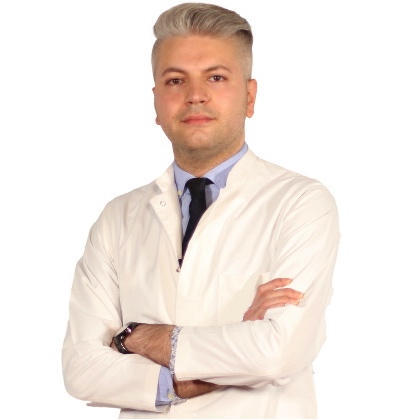
Education Information
He completed primary, secondary and high school in Baku. He graduated from Azerbaijan Medical Faculty in 2010. He completed his ophthalmology residency in Baku National Ophthalmology Center Azerbaijan . He was entitled to receive the Presidential Scholarship of the Republic of Azerbaijan in 2014, and completed the equivalence of specialization in Turkey in the Department of Ophthalmology, Faculty of Medicine, Selcuk University in 2014-2018, and worked as a research assistant and ophthalmologist at the university until 2018. He worked as an Ophthalmologist at Private LIV Hospital Nation between 2019-2022.Work experience:
- Selcuk University Faculty of Medicine
- Private LIV Hospital Ulus
Certificates, Memberships, Scientific Research:
- Peroperative developing choroidal detachment and its management.
- Surgical Approach in Posterior Polar Cataract.
- Iatrogenic retinal artery occlusion caused by cosmetic facial autologous fat filler injections.
- Effect of Smoking on Ocular Surface and Corneal Nerves.
- Lupus choroidopathy in a patient with discoid lupus erythematosus.
- Endophthalmitis and its treatment with early parsplanavitrectomy.
- Turkish Ophthalmology Association.
Specialized Treatments and Surgeries:
- Retractive Laser Eye Surgery: iLASIK (Femto Lasik), LASIK, LASEK, Trans Epithelial PRK (NO TOUCH) and SMILE
- Cataract Surgery (Smart Lens Surgery)
- Keratoconus Treatments – Cross-Linking Surgeries
- Pterygium Surgery
- Dry Eye Disease and Treatments
- Strabismus Surgery
- Glaucoma- Glaucoma Eye Pressure Treatments
- neuro ophthalmology
- Retinal Diseases Treatments
- Oculoplasty
- Uveitis Diseases
- Ectropion and entropion surgery – Eyelid deformity treatments
- Enucleation and Evisceration Prosthetic Eye Surgery
Foreign language:
- English
- German
- Russian
- Azerbaijani
- Turkish
MEDICAL UNIVERSITY of Selcuk
12 Years of EXPERIENCE
>8.000 Surgery
Patients Reviews
Definitely avoid low-cost No Touch Laser Eye Surgery
You may think that an inexpensive laser eye surgery is right for you. This might be fine if you're buying a cheap TV, but it's not worth the gamble with your eyesight. But as you know, having cheap eye surgery means sacrificing technology, physician quality, medical care and sterile conditions, and most importantly, taking risks. The issues that fall on a patient who wants to have laser eye surgery and should pay the most attention; The hospital with the latest technology excimer laser and imaging devices, sterile environment and experienced doctors and clinical team should be selected. We would like to remind all our patients that they only have two eyes and that the most important and most sensitive sense organ is their eyes.
None of these things are more important than your eye health, and we do not compromise on quality and cutting-edge technology. We offer you our prices in a very understandable, fair and affordable way.
There are no hidden costs in our pricing. We make Laser Eye Surgery affordable for you.
Forget about your year-round expenses for your eye lenses, eyeglasses expense and more importantly, losing your eyeglasses and lenses!
Don't you want to get rid of all the trouble and expense related to your glasses and lenses? Tired of living with your glasses or contact lenses?
Imagine how nice it would be to dive, ski, jog, bike and exercise freely at the bottom of the sea without needing any of these!
We want you to know that we are 100% committed to the best possible laser eye treatment for your eyes.
